#jarobi white
Text
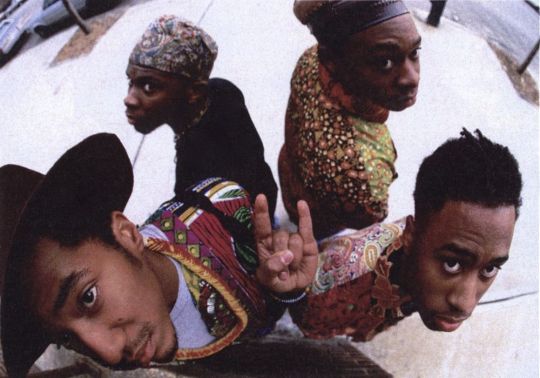
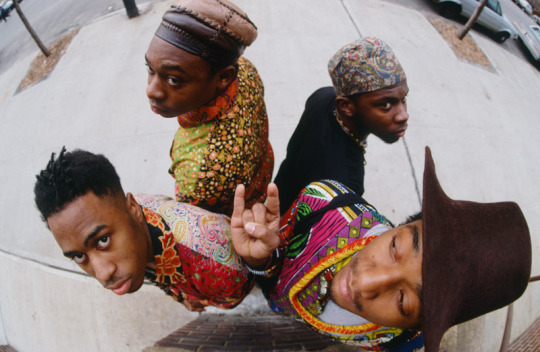
A Tribe Called Quest, © Ari Marcopoulos
#a tribe called quest#atcq#ari marcopoulos#ali shaheed muhammad#jarobi white#phife dawg#q-tip#music#musicians#hip hop#rap#pics#soupy's
621 notes
·
View notes
Text
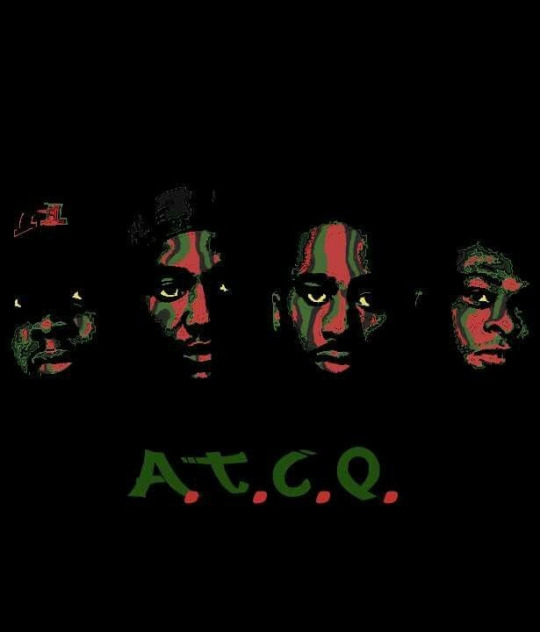
#music#hip hop#a tribe called quest#rap group#hip hop group#phife dawg#q-tip#q tip#rap#jazz#soul#funk#jarobi white#ali shaheed muhammad#atcq#atcq forever
6 notes
·
View notes
Text

Michael Rapaport, Q-Tip, Ali Shaheed Muhammad, Phife Dawg, Jarobi White, Harmony Korine, Mos Def and Leonardo DiCaprio, 1998.
#michael rapaport#q-tip#ali shaheed muhammad#phife dawg#jarobi white#harmony korine#mos def#leonardo dicaprio
40 notes
·
View notes
Text
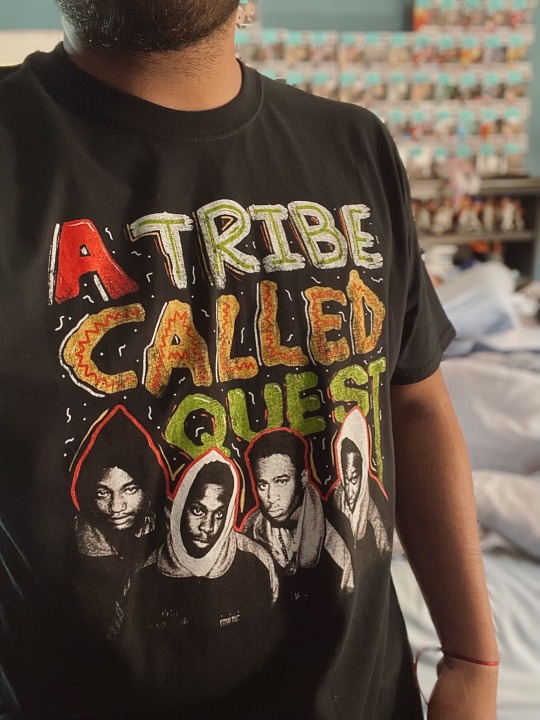
ATCQ ❗️
🎧🎵
10 notes
·
View notes
Photo

A Tribe Called Quest T-shirt, Old Skool Hip Hop Shirt, Unisex Retro Shirt Gift For Old School Hip Hop Fan, A Tribe Called Quest Cartoon Tee
#retro hip hop#old school hip hop#classic hip hop#A Tribe Called Quest classic hip#hip hop mom#gift for mom#hip hop dad#gift for hip hop fan#Q-Tip shirt#Phife Dawg Tshirt#Jarobi White shirt#low end theory shirt#classic tshirt#tshirt design#tshirts#tshirt#bestgift#gift ideas#giftforher#giftshop#gift idea#gift
1 note
·
View note
Text
Check the rhyme and this playlist
A Tribe Called Quest is one of the most influential Hip Hop groups of all time, an act that paved the way for countless rappers to be simply themselves. They laid the blueprint for both quirky and thoughtful alternative rap with lyrical content that was funny, observant, abstract, and full of lightheared confidence. Sonically, Tribe’s production masterfully connected jazz and Hip Hop like no other group before them.
Part of the alternative rap click, The Native Tongues, Tribe solidified their jubilant arrival with their eclectic, exuberant 1990 debut, People’s Instinctive Travels and Paths of Rhythms, which boasted a couple of Tribe classics and was a showcase for rapper/producer Q-Tip’s brand of playful, inspirational lyricism.
But it was their two subsequent releases, widely regarded as two of the best, most influential Hip Hop albums of all time—1991’s The Low End Theory and 1993’s Midnight Mauraders— that cemented their place as innovators with a unique ear for linking fluid, bottom-heavy jazz, with Hip Hop drums and sensibilities. Following original member Jarobi White’s departure, their sophomore effort also served as a further introduction to Phife’s lighthearted, boastful rhyme skills, which would continue throughout Tribe’s career.
Combined with their quirky, self-reflection, Tribe’s core sound was completely its own, and over the years has proven to be both timeless and endlessly influential.
“We’re all [Q-Tip’s] sons,” Pharrell Williams has said. “Myself, J Dilla, Kanye, we wouldn’t be here if it wasn’t for Tribe albums.”
We’ve combed through their catalog to offer 25 of their dopest songs.
#26
"RUMBLE IN THE JUNGLE" FUGEES FEAT. A TRIBE CALLED QUEST, BUSTA RHYMES, JOHN FORTE [BONUS SONG]
Our BONUS SONG pick is a celebrated classic guest spot! Two of the 90s greatest rap crews join forces on the "When We Were Kings" soundtrack
#25
"THE DONALD" FEAT. BUSTA RHYMES
A tribute to the late Phife Dawg, “The Donald” properly closes out Tribe’s final album, with a fitting feature from frequent collaborator, Busta Rhymes. Tip remembers his friend on the second verse: “We gon' celebrate him, elevate him, papa had to levitate him/Give him his and don't debate him/Top dog is the way to rate him…”
#24
"GET A HOLD"
J Dilla’s longtime friend and collaborator DJ Houseshoes said it took him about 12 minutes to make what became “Get A Hold” from Tribe’s fourth album, Beats, Rhymes and Life. The beat is one on the album that helped signal a shift in Tribe’s sound when Q-Tip, Ali Shaheed, Dilla formed the production unit, The Ummah.
#23
"STRESSED OUT" FEAT. FAITH EVANS
Tensions were high by the time Tribe released Beats, Rhymes, and Life. But the group’s fourth album did have moments when everything was in tune, including on “Stressed Out” featuring Faith Evans who interpolates Anita Baker’s classic “Good Love” for the hook.
DROP YOUR EMAIL
TO STAY IN THE KNOW
SUBMIT
#22
"IF THE PAPES COME"
Experimental in both lyrics and production, “If The Papes Come” (the B-Side to “Can I Kick It?”) offers the other side of Tribe’s genius, showcasing their propensity to test musical boundaries and color outside the lines, or at least re-shape them.
#21
"BUTTER"
Phife shines on “Butter,” a solid addition to the classic Midnight Mauraders, where he spins a familiar “back then you didn’t want me, now you all up on me” tale: “I remember when girls were goodie two shoes/but now they turning freaks/ All of a sudden (we love you Phife)/ease off ho, my name’s Malik…”
#20
"STEVE BIKO (STIR IT UP)"
A dope beginning to a quintessential Hip Hop album, “Steve Biko (Stir It Up)” (named for the famous South African freedom fighter) is a proper reminder of the creative energy Tribe brought to the table.
#19
"VIBES 'N STUFF"
A track that embodies the energy of The Low End Theory, “Vibes and Stuff” is a laid-back groove dedicated to Scott LaRock and Trouble T Roy, where Q-Tip shines with bars about staying true to self: “Here I am ghetto, full with a lot of steam/Think I gotta, I think I gotta, I think I gotta scream/Cause that’s how good it feels child/Let your hair down, so we can get buck wild/Do your ill dance, don’t think about the next man…”
#18
"FOOTPRINTS"
Flipping Donald Byrd’s “Think Twice” before Erykah Badu offered her own rendition on "Worldwide Underground," “Footprints” is an early example of Tip’s lyrical prowess, and a groovy standout on their debut.
#17
"LYRICS TO GO"
Q-Tip has never hidden his love for iconic singer Minne Riperton, sampling her work on a few of Tribe’s biggest hits, including this one from Midnight Mauraders. He samples “Inside My Love” on the track, which was the B-Side to “Oh My God.”
#16
"EXCURSIONS"
While Tribe wasn’t the only rap act that was incorporating jazz into their music, what they were doing was specific and unique, a vision that came to life on their second album, The Low End Theory. The album got its name because Q-Tip was leaning heavily into the bottom of his production, or the low end, bass-heavy sound that’s used on “Excursions,” the album’s opening track that signaled the direction Tribe was headed in subsequent years.
#15
"HOT SEX"
It’s not necessarily known as a Tribe standard but “Hot Sex,” featured on the 1992 hit soundtrack for "Boomerang," was an early introduction of the group to casual rap fans. It was also featured as a bonus track on The Love Movement years later, and helped set up the sound Q-Tip would play around with on his 1999 solo debut, "Amplified."
#14
"WE THE PEOPLE..."
The lead single from their final album, "We Got It From Here… Thank You 4 Your Service," was Tribe’s stamp on the politically-charged music that dominated music in 2016. The song dropped a couple of weeks after Trump was elected, and became even more appropriate, a rallying cry that cemented exactly where Tribe stands when it comes to socio-political issues, with Tip in top form over the grinding track.
#13
"I LEFT MY WALLET IN EL SEGUNDO"
Q-Tip’s off-beat storytelling is on display on this memorable entry from their debut album, which also is a wink at the classic series, Sanford & Son.
#12
"SUCKA NIGGA"
More than most Tribe tracks, “Sucka Nigga” gives a clear look into what Q-Tip’s solo run would sound like, especially on 2008’s "The Renaissance."
#11
"SPACE PROGRAM"
Released in November 2016, We Got It From Here… Thank You For Your Service, Tribe’s final album, dropped eight months after Phife’s death from complications due to diabetes. While the album featured a number of high-profile appearances (Kendrick Lamar, Anderson.Paak, Andre 3000, Elton John)it was at its brightest when Tribe kept it in-house. “Space Program” triumphantly opens the album, with the celebratory but thought-provoking sound that made Q-Tip famous. Lyrically, they’re sharper than ever: “There ain’t a space program for niggas/We stuck here nigga,” they recite on the hook, ever observant, and always on point.
#10
"FIND A WAY"
The lead single from their fifth album, 1998’s "The Love Movement" (the last album to be released during Phife’s lifetime) “Find My Way” is the culmination of everything producer J. Dilla did best — incorporating mellow, jazzy instrumentation over stark drums that hit hard. “Find A Way.” Add what was already stellar production to a catchy hook and easy, love-friendly lyrics from Tip and Phife, and you have an undisputed heavyweight in Tribe’s catalog.
#9
"OH MY GOD" FEAT. BUSTA RHYMES
“Scenario” isn’t the only place where Busta shines on a Tribe record, as evidenced on “Oh My God,” the third single released from "Midnight Marauders." Over a sample of Kool & The Gang’s “Who’s Gonna Take the Weight,” Q-Tip offers a nice summation of who is on the track’s opening bars: “I’m a Black intellect, but unrefined…”
#8
"1NCE AGAIN" FEAT. TAMMY LUCAS
The lead single from their fourth album, Beats, Rhymes and Life, “1nce Again” is a mellow groove and a bright spot on the album. It notably features production from J Dilla (working with the production collective The Ummah which also included Ali Shaheed and Q-Tip).
#7
"CAN I KICK IT?"
One of the most immediately recognizable songs from their debut, People’s Instinctive Travels and the Paths of Rhythms, “Can I Kick It” is a hallmark Tribe track that offers the best the group had to offer— a groovy Hip-Hop track with laid-back rhymes.
#6
"AWARD TOUR"
The second the opening chords drop, it’s apparent something really cool is happening with the production and when the drums beat on, it completely makes sense that “Award Tour” was the lead single from the classic "Midnight Marauders," and was Tribe declaring their place with the people but also letting everyone know they weren’t to be toyed with. Phife declares on the second verse: “Never let a statue tell me how nice I am…” which takes on new meaning when you consider they’ve never won a Grammy.
#5
"JAZZ (WE GOT)"
One of the main reasons Tribe is recognized as a pioneering group is because more than any other artists, they brilliantly showed the connection between jazz and Hip Hop, as was the case on the second single from The Low End Theory, “Jazz (We’ve Got).” Pete Rock provided the original sample (which is why Q-Tip shouts him out at the end), although Q-Tip re-worked it to come up with one of the group’s laid-back standouts.
#4
"SCENARIO" FEAT. LEADERS OF THE NEW SCHOOL
Widely considered one of the greatest posse cuts of all time, “Scenario,” which was the third single from "The Low End Theory," also served as a launchpad for Busta Rhyme’s solo career.
#3
"BONITA APPLEBUM"
Sensual and chill, “Bonita Applebum,” the second single from Tribe’s debut album, "The People’s Instinctive Travels and Paths of Rhythm," was a sexy-cool love letter that hit at the core of what Tribe offered. It was original, sweet but not corny, and different from what everybody else was doing at the time.
#2
"ELECTRIC RELAXATION"
A classic entry in Tribe’s discography, “Electric Relaxation” was the second single from "Midnight Mauraders," and is basically a perfect song. Phife recalled walking into his Grandma’s house, where Q-Tip was in the basement working on the beat, which samples Ronnie Foster’s “Mystic Brew,” and immediately recognizing it was something special. It’s Phife and Q-Tip at their best, trading back-and-forth verses that birthed classic one-liners like Phife’s endlessly quoted opening: “I like them brown, Puerto Rican or Haitian…”
#1
"CHECK THE RHIME"
“Check The Rhime” isn’t just a quintessential Tribe song, it’s an essential Hip Hop song. From the slick sample of Minnie Riperton’s “Baby This Love” bass line, to the lyrics, which are chock-full of famous one-liners (“record industry rule No. 4080” chief among them), and the smooth back-and-forth between Tip and Phife, this is a classic example of the energy, charisma, and chemistry Tribe brought to music.
Sent from my iPhone
#hip hop 50#today in hip hop history#todayinhiphophistory#hiphop#hip-hop#hip hop#hip hop music#hip hop history#hip hop culture#music#history#music history#television#rap#rapper#emcee#mc
9 notes
·
View notes
Text
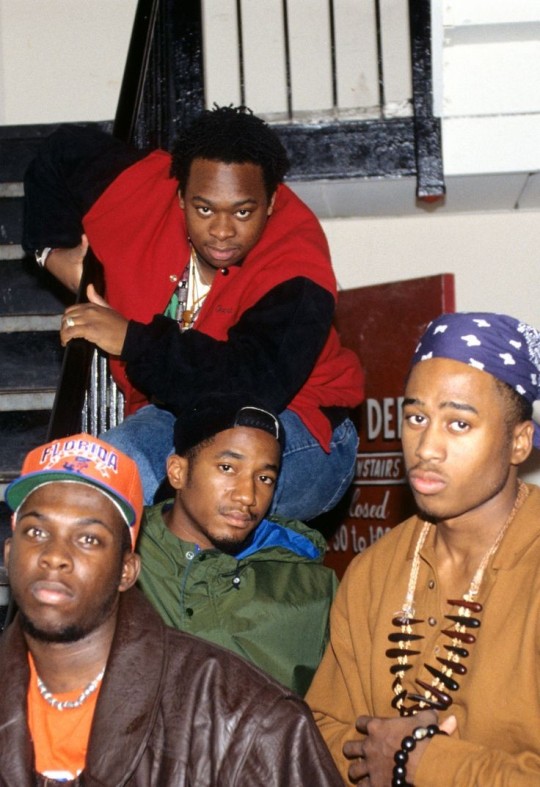
#HIP HOP LEGENDS ✨ #ATCQ ✨
#JAROBI WHITE 📽️💿🎼🌹💘👑🎤✨
#ALI SHAHEED 📽️💿🎼🌹💘👑🎤✨
#Q-TIP 📽️💿🎼🌹💘👑🎤✨
#RIP PHIFE DAWG 📽️💿🎼🌹💘👑🎤🙏✨
2 notes
·
View notes
Text
The Fantastic Music of Slum Village

In this blog, I will be discussing three albums created by the legendary hip-hop group known as Slum Village. These albums are titled Fan-Tas-Tic, Vol. 1, Fantastic, Vol. 2, and Fantastic, Vol. 2.10. I will discuss the differences between each of these three projects and discuss the history behind them. Let's dive right in!
To start things off, allow me to introduce the original members of Slum Village. Taking a look at the picture posted above, original members of the group, from left to right, consisted of T3, Baatin, and J Dilla. The three met in high school back in the 90s and began making music for fun. It's at this point that I would highly encourage people to read Dan Charnas's book titled "Dilla Time" (https://a.co/d/5UVnlxa). It gives amazing insight into the life of J Dilla and his relationship with his family, friends, the music community at the time, and music history as a whole. It's an amazing read.
J Dilla was the heart and soul of the group. He was a musical genius and mastermind who would create the most amazing beats/compositions out of seemingly thin air. His signature drum sound provided an unforgettable rhythm for the entire group to vibe to and share with the world at large. According to Dan Charnas, J Dilla practically invented a new way to feel time by creating, what Dan calls, "Dilla Time". This is a great quick video which shows the idea behind this term that Charnas coined: https://youtube.com/shorts/j2VFEHLkZQI?feature=share . J Dilla wasn't the only person behind the defining sound of Slum Village though. T3 and Baatin provided something to the group that is so meaningful that I hear and feel something new each and every time I listen to any Slum Village song or project. J Dilla was more of a producer for Slum Village, though he would rap on tracks from time to time. T3 and Baatin were the group's main rappers. Kind of like the members of another legendary hip-hop group called A Tribe Called Quest. A Tribe Called Quest originally consisted of four members: Jarobi White, Q Tip, Phife Dawg, and Ali Shaheed Muhammad. After releasing their first project titled "People's Instinctive Travels and the Paths of Rhythm", Jarobi decided to leave the group to pursue a culinary career, which he went on to flawlessly exceed in and eventually came back to the group for their 2016 release of their sixth and final album titled "We Got it From Here... Thank You 4 Your Service". Starting with their second release titled "The Low End Theory" and through their fifth release titled "The Love Movement", the group consisted of the three members who weren't Jarobi. Q Tip and Phife Dawg served as the group's main MCs (Masters of Ceremonies/Master Coordinator's) while Ali Shaheed Muhammad served as the group's DJ and producer. This is how Slum Village was similar to A Tribe Called Quest, though Q Tip was a huge source of production material for ATCQ, but would always credit the group for the production work and never just himself. Back to Slum Village. T3 and Baatin were the main MCs, and to my ears, T3 seemed to always be a more "proper" rapper. I mean this in the sense of he would rap to the flow of the beat and not include any unique characteristics that would distinguish him from other rappers. That's not saying he's not a good rapper! In fact, T3 is an amazing rapper and one can definitely pick his voice and rapping style out of a sea of rappers. Baatin on the other hand was noticeably different. He rapped sometimes in front of or even behind the beat. He would occasionally slurp while rapping, and he would occasionally throw in occult/esoteric bars into his raps. Baatin rhyming about occult/esoteric topics inspired T3 to rap about that stuff as well. Baatin's way of rhyming was akin to Ol' Dirty Bastard's rhyming style from the Wu Tang Clan, a pioneering, historical hip-hop group from the 90s. Ol' Dirty was known as "The Drunken Master" amongst his fans and fellow group members. And this was due to his unique rhyming style which literally sounded as if he was drunk while rapping but had mastered his craft so well that even while drunk, he would include the most witty, elegant, and intricate bars. Baatin may not have been drunk while rapping, but his rhyming style was as free flowing and unique as the way J Dilla's beats and drums felt. The way the group members flowed with each other's energies is a true spectacle to hear. Who else could have done it like that with the equipment they had and the environment they were in at that specific point in time?
Let's get into the group's first unofficial official project titled "Fan-Tas-Tic, Vol. 1".
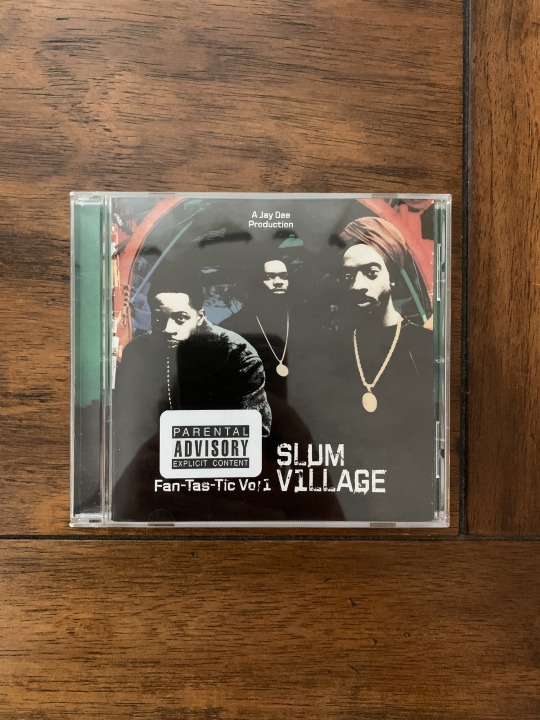

16 notes
·
View notes
Text
The Untold Story of A Tribe Called Quest's Breakup: Creative Differences, Financial Disputes, and Personal Conflicts

A Tribe Called Quest was one of the most influential hip-hop groups of the 1990s. The group consisted of Q-Tip, Phife Dawg, Ali Shaheed Muhammad, and Jarobi White. They were known for their jazzy beats, conscious lyrics, and their ability to bridge the gap between mainstream and underground hip-hop. However, after releasing five successful albums, the group disbanded in 1998, leaving many fans wondering why.
There were several factors that contributed to A Tribe Called Quest's breakup, including creative differences, financial disagreements, and personal conflicts. One of the main issues was the tension between Q-Tip and Phife Dawg. The two had been friends since childhood and had formed the group together, but they often clashed over the direction of their music. Q-Tip was known for his experimental and innovative approach to production, while Phife Dawg preferred a more straightforward and traditional sound.
In an interview with Rolling Stone in 2016, Q-Tip discussed the tension between him and Phife Dawg. He said, "Phife and I were like brothers, but brothers fight. We had creative differences and a lot of other things going on that just made it difficult for us to work together."
Financial disagreements were also a factor in the breakup. A Tribe Called Quest was signed to Jive Records, and the group had issues with the label over royalties and creative control. The group felt that Jive Records was more concerned with commercial success than artistic integrity, and this led to tension between the two parties.
In addition to creative and financial disagreements, personal conflicts also played a role in the breakup. Phife Dawg had been dealing with health issues for years, including diabetes, and this put a strain on the group's dynamic. In the same Rolling Stone interview, Q-Tip said, "Phife's health was deteriorating, and that was really tough for all of us. We wanted to support him, but it was difficult to keep things going when he wasn't feeling well."
Despite their disagreements, A Tribe Called Quest remained close friends, and they continued to perform together over the years. However, it wasn't until 2016 that the group reunited to release their final album, "We Got It from Here... Thank You 4 Your Service." The album was a tribute to Phife Dawg, who had passed away earlier that year, and it received critical acclaim.
In conclusion, A Tribe Called Quest's breakup was a result of a combination of factors, including creative differences, financial disagreements, and personal conflicts. The tension between Q-Tip and Phife Dawg, in particular, was a major contributing factor. Despite the breakup, the group's legacy continues to influence hip-hop artists today, and their music remains as relevant and important as ever.
Deveondi hip hop music
#a tribe called quest#hip hop#hip hop music#hiphop#rap music#rap#rappers#rapper#musician#musicians#music#rapmusic#entertainment news#celebrity news#celeb news#news#google news
2 notes
·
View notes
Text
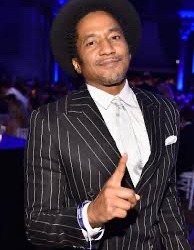
Kamaal Ibn John Fareed (born Jonathan William Davis, April 10, 1970) known by his stage name Q-Tip, is a rapper, record producer, singer, and DJ. Nicknamed The Abstract. He embarked on his music career in the late 1980s, as an MC and main producer of the influential alternative hip-hop group A Tribe Called Quest. He co-founded the production team The Ummah, followed by the release of his gold-certified solo debut Amplified. He released the Grammy Award-nominated album The Renaissance and the experimental album Kamaal the Abstract.
He has appeared in various films such as Poetic Justice, She Hate Me, and Prison Song, the latter of which he co-wrote and played the lead role. As a DJ, he has hosted the Apple Music 1 radio show Abstract Radio since 2015. He was named the artistic director for hip-hop culture at the Kennedy Center and he became the instructor of a jazz and hip-hop course at New York University’s Clive Davis Institute of Recorded Music.
He is one of the most acclaimed figures in hip-hop. AllMusic states that he “led a jazz-based hip-hop revolution during the ‘90s”, calling him “the best rapper/producer in hip-hop history”. About.com placed him #17 on their list of the Top 25 Hip-Hop Producers, and #38 on their list of the 50 Greatest Rappers of All Time. The Source ranked him #20 on their list of the Top 50 Lyricists of All Time.
He was born in Harlem, his family settled in St. Albans, Queens. He first met his friend Phife Dawg at church when they were both two years old. He began rapping after being encouraged by Phife Dawg.
He attended Murry Bergtraum High School, where he first befriended Ali Shaheed Muhammad, Afrika Baby Bam, and Mike Gee, with the latter two forming the hip-hop group Jungle Brothers. In high school, he participated in rap battles and went by the stage names J Nice and MC Love Child. He and Muhammad formed an MC and DJ duo, and using recording equipment provided by Muhammad’s uncle, they began making demos. They were joined by Phife Dawg, who rapped, and neighborhood friend Jarobi White; collectively, they were known as Quest. #africanhistory365 #africanexcellence
0 notes
Photo

Posted @withregram • @thirstinhowlthe3rd Love & Loyalty weekend Orlando 2023 Special guest Dj spinning live.. The tribe called quest legend Jarobi White https://www.instagram.com/p/CqDPuLRLKcr/?igshid=NGJjMDIxMWI=
0 notes
Text
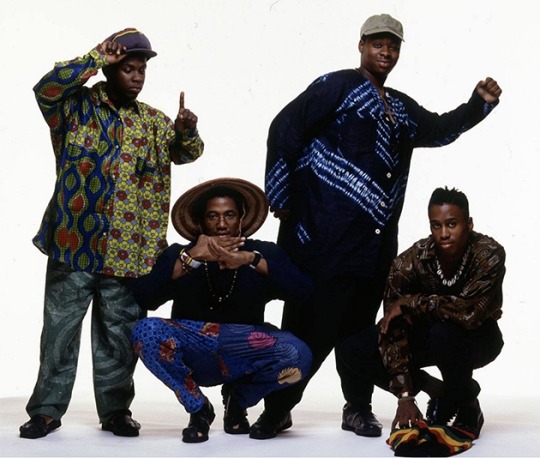
A Tribe Called Quest, © Ari Marcopoulos
#a tribe called quest#atcq#music#musicians#hip hop#rap#pics#soupy's#ari marcopoulos#phife dawg#q-tip#jarobi white#ali shaheed muhammad
291 notes
·
View notes
Text
"Seven times out of ten we listen to our music at night,
thus spawned the title of this program
The word, maraud, means to loot
In this case, we maraud for ears"
#Spotify#hip hop#lyrics#music#atcq#a tribe called quest#midnight marauders#award tour#q tip#q-tip#ali shaheed muhammad#jarobi white#phife dawg#r.i.p. phife dawg#r.i.p. phife
47 notes
·
View notes
Photo

instagram
#graphicdesigns#atcq#a tribe called quest#phife dawg#q-tip#ali shaheed muhammad#jarobi white#retro#vintage#1990s#90s#hip hop#urban#east coast#poster#poster design#grain#photoshop#new york
25 notes
·
View notes
Text
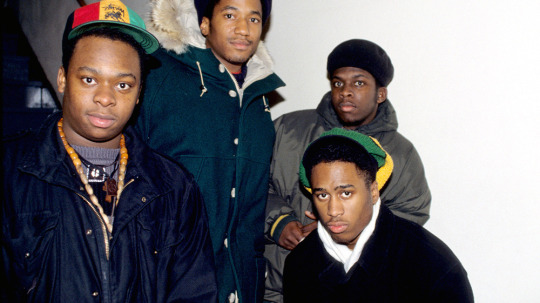
A TRIBE CALLED QUEST
#q tip#phife dawg#ali shaheed muhammad#jarobi white#queens#a tribe called quest#old school#east coast
39 notes
·
View notes
Photo

A Tribe Called Quest in a hallway next door to Def Jam.
📸: Ernie Paniccioli
#omega#our lady omega#A Tribe Called Quest#Q-Tip#Phife Dawg#Ali Shaheed#Jarobi White#hip-hop#rap#golden era#legends
16 notes
·
View notes